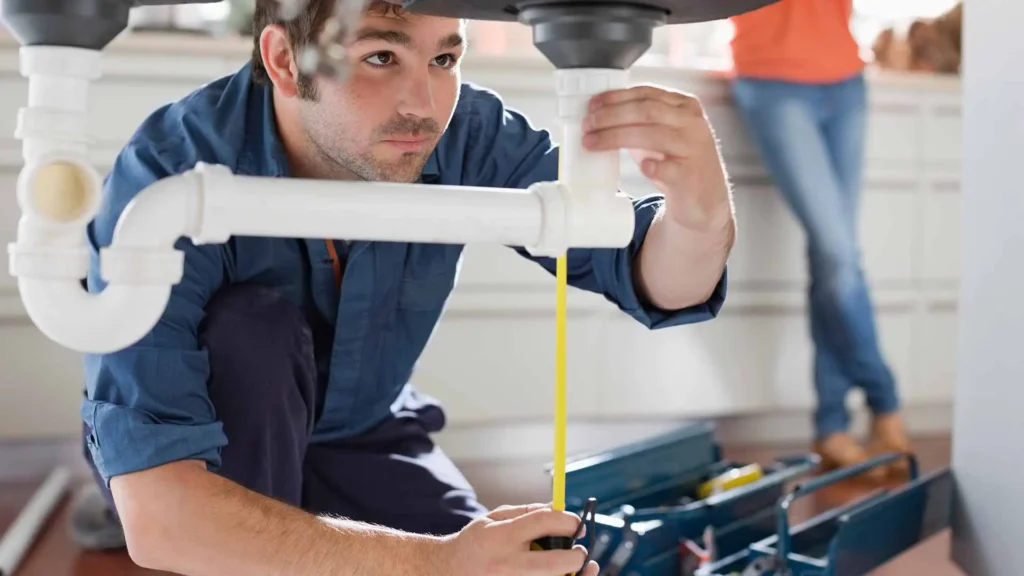
Pursuing a career in plumbing offers diverse opportunities, from residential and commercial plumbing to specialized areas like gas fitting and drainage. In Australia, achieving professional qualifications in plumbing typically involves completing the Certificate III in Plumbing and, for those seeking to advance their skills and responsibilities, the Certificate IV in Plumbing. This article outlines the requirements for both certifications, highlighting the steps to obtain them and the benefits each qualification offers.
Certificate III in Plumbing
Certificate III in Plumbing is the foundational qualification for aspiring plumbers. It equips students with the essential skills and knowledge needed for a successful career in plumbing. Here’s what you need to know about the requirements and process for obtaining this certificate:
- Entry Requirements:
- Age: Generally, there is no minimum age requirement, but most students are over 16.
- Education: While there are no formal educational prerequisites, a basic understanding of mathematics and science can be beneficial.
- English Language Skills: Proficiency in English is necessary to understand technical materials and communicate effectively.
- Course Content:
- The Certificate III course covers a wide range of topics, including water and sanitary services, gas services, and drainage systems.
- Key units of competency include installing and repairing pipes, fixtures, and fittings, as well as maintaining and testing plumbing systems.
- Training Delivery:
- Classroom Training: Theoretical knowledge is imparted through classroom sessions.
- On-the-Job Training: Practical skills are developed through work placements or apprenticeships, typically lasting 3-4 years.
- Assessment: Assessments include practical tasks, written tests, and workplace projects.
- Certification Process:
- Enrolment: Choose a Registered Training Organisation (RTO) accredited to deliver the Certificate III in Plumbing.
- Completion of Units: Successfully complete all required units of competency.
- Work Experience: Gain relevant work experience through an apprenticeship or supervised training.
- Final Assessment: Pass assessments to demonstrate competency in plumbing skills.
- Career Outcomes:
- With a Certificate III in Plumbing, you can work as a qualified plumber in various settings, including residential, commercial, and industrial environments.
Certificate IV in Plumbing
Certificate IV in Plumbing is the next step for those who wish to advance their career, specialize further, or take on supervisory roles. Here’s what you need to know about the requirements and process for obtaining this certificate:
- Entry Requirements:
- Previous Qualification: Completion of Certificate III in Plumbing is typically required.
- Work Experience: Some work experience in the plumbing field is necessary to undertake this qualification effectively.
- Course Content:
- The Certificate IV course focuses on advanced plumbing techniques and management skills.
- Key areas include designing plumbing systems, managing plumbing projects, and supervising apprentices.
- Specialized units may cover areas such as plumbing for high-rise buildings or advanced gas fitting.
- Training Delivery:
- Classroom Training: Advanced concepts and management practices are taught through classroom sessions.
- On-the-Job Training: Practical application and project management skills are developed in the workplace.
- Assessment: Includes practical assessments, written examinations, and project-based tasks.
- Certification Process:
- Enrolment: Enroll in a course through an RTO offering Certificate IV in Plumbing.
- Completion of Units: Successfully complete all required units, including both core and elective modules.
- Experience: Gain relevant work experience, often involving advanced tasks or project management.
- Final Assessment: Pass assessments demonstrating advanced plumbing skills and management capabilities.
- Career Outcomes:
- With a Certificate IV in Plumbing, you can pursue roles such as a plumbing supervisor, project manager, or specialist plumber.
- It also opens doors to further qualifications or business ownership in the plumbing sector.
Conclusion
Obtaining a Certificate III in Plumbing and a Certificate IV in Plumbing provides a comprehensive pathway to a successful plumbing career. While the Certificate III lays the groundwork for essential plumbing skills, the Certificate IV offers advanced training and leadership opportunities. Both qualifications are crucial for those looking to excel in the plumbing industry, whether you’re just starting or aiming to advance to higher responsibilities. Choose a reputable training provider and commit to both theoretical and practical learning to achieve these valuable certifications.